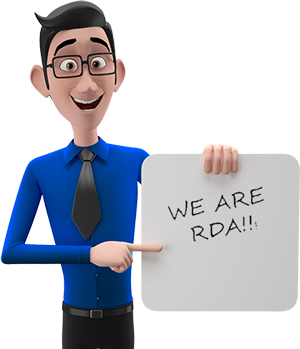Homeowners association budget management plays a crucial role in maintaining community well-being and property values. Effective financial planning ensures that associations can meet their obligations while providing essential services to residents. However, many HOAs encounter common pitfalls that can lead to financial instability and dissatisfaction among homeowners.
This article explores frequent mistakes in HOA budget planning and offers practical solutions to avoid them. We’ll examine issues such as overreliance on assessment income, inadequate planning for capital improvements, and mismanagement of delinquent accounts. Additionally, we’ll discuss the importance of adjusting for inflation, market changes, and considering insurance and legal expenses in the budget process. By understanding these challenges, HOA boards can improve their financial management and create more transparent, sustainable budgets for their communities.
Overreliance on Assessment Income
Homeowners association budget planning often falls into the trap of depending too heavily on assessment income. This practice can lead to financial instability and challenges in maintaining community well-being. To ensure a robust financial foundation, HOAs need to understand the risks associated with this approach and explore strategies to diversify their income sources.
Risks of depending solely on dues
Relying exclusively on homeowner assessments for income poses significant risks to an HOA’s financial health. When an association bases its budget primarily on dues, it becomes vulnerable to several issues:
- Budget deficits: Overly optimistic revenue projections, such as expecting all homeowners to pay their assessments on time, can result in shortfalls. Delinquent payments and unexpected revenue gaps can disrupt financial plans, forcing the HOA to cut corners or tap into reserve funds.
- Maintenance compromises: Poor collection rates directly lead to budget deficits, which may force the association to reduce property maintenance and upkeep. Over time, this can devalue every property in the community.
- Special assessments: If the operating fund cannot meet daily expenditures, the board may have to charge special assessments. This unpopular choice among homeowners can strain relationships within the community.
- Reserve fund depletion: To cover shortfalls, HOAs might access reserve funds intended for emergencies and future replacements. This short-term solution can lead to higher fees in subsequent years to compensate for the loss.
Diversifying income sources
To mitigate the risks associated with overreliance on assessment income, HOAs should explore alternative revenue streams. Here are some strategies to diversify income sources:
- Rental income: Utilize unused spaces within the community. Rent out vacant storage areas, parking spaces, or community facilities for private events.
- Event fees: Organize community events and charge a small cover cost. This not only generates extra revenue but also creates fun activities that residents view as perks of living in the community.
- Advertising opportunities: Sell ad space in community newsletters or on the HOA website to local businesses. This can provide a consistent, albeit smaller, source of income.
- Amenities fees: Consider charging a monthly or yearly fee for using community amenities like pools or gyms. This can fund general upkeep and potentially generate extra income for upgrades.
- Vendor partnerships: Bring in outside vendors, such as fitness instructors or mobile pet groomers, who pay a fee to use the association’s facilities.
Strategies for improving collection rates
While diversifying income is crucial, improving collection rates for existing assessments is equally important. Here are some strategies to enhance the collection process:
- Establish clear policies: Develop and communicate a well-defined collection policy that outlines the consequences of delinquent payments. Ensure all homeowners understand these guidelines.
- Offer payment options: Provide various payment methods, including online platforms and automatic transfers, to make it convenient for homeowners to pay their dues on time.
- Implement early intervention: Address delinquent accounts promptly to prevent small issues from escalating into larger problems.
- Consider payment plans: For homeowners facing financial difficulties, offer reasonable payment plans to help them catch up on their dues without resorting to more severe measures.
- Educate homeowners: Regularly communicate the importance of timely payments and how they contribute to the community’s overall well-being and property values.
- Use professional services: If collection efforts become challenging, consider engaging a professional management company or attorney specializing in HOA matters to handle delinquent accounts.
By implementing these strategies, HOAs can reduce their reliance on assessment income, improve financial stability, and create a more resilient budget. This approach not only helps in maintaining the community’s financial health but also fosters a positive relationship between the board and homeowners.
Inadequate Planning for Capital Improvements
Homeowners association budget planning often overlooks the critical aspect of capital improvements, leading to financial strain and community dissatisfaction. Proper planning for these significant expenses is essential to maintain and enhance the community’s assets while ensuring financial stability.
Importance of long-term planning
Long-term planning plays a crucial role in effective homeowners association budget management. It allows associations to anticipate future needs, allocate resources efficiently, and avoid sudden financial burdens on homeowners. By taking a proactive approach, HOAs can better manage their finances and maintain the community’s well-being.
To achieve this, boards should treat running their association like a business. This involves proper budgeting, strategic planning, and prioritizing the most important projects. By auditing the budget for expenses versus income, boards can determine the association’s financial stability and make informed decisions about capital improvements.
Conducting regular reserve studies
Reserve studies are indispensable tools for HOAs to gage the condition of their reserve fund and plan long-term budgets. These studies provide an in-depth analysis of the association’s assets and financial health, helping boards make informed decisions about future expenditures.
A comprehensive reserve study typically includes two main components:
- Physical Analysis: This assesses the physical condition of community areas that the HOA is responsible for maintaining and repairing. It also includes an analysis of repair or replacement costs.
- Financial Analysis: This evaluates the association’s financial health, including revenues, expenses, and reserve fund balance.
Conducting regular reserve studies enables associations to anticipate large costs and plan accordingly. It’s recommended to update reserve studies every three to five years, with some experts suggesting annual updates to ensure the most accurate information. These studies should include one, five, ten, and twenty-year analyzes of all infrastructure to provide a clear understanding of future financial tasks.
Balancing immediate needs with future projects
One of the biggest challenges in homeowners association budget planning is striking a balance between addressing immediate needs and preparing for future projects. Boards must carefully prioritize projects based on safety, financial impact, and community benefit.
To achieve this balance, consider the following strategies:
- Prioritize safety: Always prioritize projects that address potential safety hazards or could lead to physical injury.
- Evaluate long-term costs: Determine which projects are most likely to cause the association the most money in the long run if not addressed promptly.
- Consider community input: Involve homeowners in the decision-making process to foster a sense of ownership and pride in the community.
- Review the reserve study: Use the reserve study as a guide to identify upcoming major maintenance and replacement needs.
- Assess financial stability: Consider the level of reserve account funding when defining overall financial health. While funding at 100% of a reserve study’s recommended level is ideal, many boards deem 50% to 75% adequate.
- Plan for unexpected expenses: Ensure the HOA has enough money for significant, unexpected expenses without imposing special assessments on homeowners.
By implementing these strategies and maintaining a focus on long-term planning, homeowners associations can avoid the pitfalls of inadequate capital improvement planning. This approach not only helps maintain property values but also contributes to a thriving and financially stable community.
Mismanagement of Delinquent Accounts
Effective financial management in a homeowners association budget relies heavily on the proper handling of delinquent accounts. When homeowners fail to pay their dues on time, it can have a significant impact on the association’s financial stability and overall budget planning process.
Impact of unpaid assessments on budget
Unpaid assessments can quickly lead to budget deficits, making it challenging for the HOA to cover necessary expenses. This financial strain can result in reduced maintenance and upkeep of common areas, ultimately leading to dissatisfied homeowners and lower property values. To make up for the shortfall, associations may need to consider less desirable options such as applying for loans or imposing special assessments on homeowners.
To address this issue, it’s crucial for HOA boards to closely monitor delinquencies and discuss them at every board meeting. Creating a detailed delinquency report that includes the names of delinquent homeowners, amounts owed, and duration of overdue balances can help track the situation effectively. This level of transparency in the budget process allows for better financial management and timely action.
Effective collection policies
Implementing a clear and consistent collection policy is essential for managing delinquent accounts. This policy should outline the steps the association will take to collect unpaid dues, including:
- Sending timely notices to homeowners with overdue balances
- Imposing late fees and interest charges on delinquent accounts
- Offering payment plans to homeowners facing financial difficulties
- Reporting delinquencies to credit agencies as a consequence
By establishing a well-defined collection policy, HOA boards can ensure fair and uniform treatment of all homeowners while encouraging timely payments. This approach contributes to better budget planning and financial stability for the association.
Legal considerations in handling delinquencies
When dealing with delinquent accounts, HOAs must be aware of the legal implications and follow proper procedures to avoid potential issues. Some legal options available to associations include:
- Placing liens on properties with delinquent payments
- Initiating foreclosure proceedings as a last resort
- Taking delinquent homeowners to small claims court
However, it’s crucial to understand that these actions must comply with state and federal laws governing debt collection practices. HOA boards should consult with legal professionals to ensure their collection efforts adhere to all applicable regulations.
To minimize legal risks, associations should consider the following:
- Regularly review and update collection policies to ensure compliance with current laws
- Avoid board members making direct collection calls to delinquent homeowners, as this may expose them to liability under the Fair Debt Collections Practices Act
- Clearly communicate the consequences of non-payment to all homeowners
- Maintain detailed records of all collection efforts and communications
By implementing these strategies and maintaining a focus on transparency and fairness in the budget process, homeowners associations can effectively manage delinquent accounts while upholding their financial responsibilities to the community.
Failure to Adjust for Inflation and Market Changes
Homeowners association budget planning requires careful consideration of economic factors beyond the community’s immediate needs. Failing to adjust for inflation and market changes can lead to financial instability and inadequate resources to maintain the community’s well-being.
Understanding economic factors affecting HOA budgets
Inflation weakens currency and causes the costs of goods and services to rise. This directly impacts homeowners association budgets, as expenses for landscape maintenance, janitorial services, and energy costs continue to soar. Management services have also seen increases, leading to higher HOA dues to cover these rising costs.
HOA board members must understand their fiduciary obligations and provide an adequate, realistic budget based on the best available information. This involves anticipating future costs and adjusting the budget to accommodate these changes. Regular reviews of expenses and revenue streams are essential to maintain financial stability.
To effectively manage the impact of inflation on HOA finances, boards should:
- Review existing contracts for renewal dates, paying attention to those with Consumer Price Index (CPI) clauses that might result in higher costs.
- Contact current contractors to confirm upcoming costs with formal Requests for Proposals (RFPs).
- Solicit competitive bids from other potential vendors to ensure the best value for the association.
- Review insurance policies and request updated information from vendors to certify compliance.
- Contact utility companies to inquire about price rate schedules for the upcoming year.
Strategies for anticipating cost increases
To prepare for inevitable cost increases, homeowners associations should implement proactive budgeting strategies. This involves forecasting potential cost increases in services like landscaping, utilities, and property management. By doing so, boards can adjust dues incrementally, preventing financial shock among homeowners with sudden large increases.
Some effective strategies for anticipating cost increases include:
- Analyzing year-over-year spending patterns for the last three years to estimate future increases.
- Collaborating with reserve study consultants to ensure accurate and up-to-date information on long-term financial needs.
- Regularly updating reserve studies to account for current inflation rates and align near-term capital expenses with funding requirements.
- Incorporating risk management strategies to protect against unforeseen financial hardships, such as purchasing adequate insurance coverage and creating policies to minimize financial risks associated with delinquent payments, vendor contracts, and legal disputes.
Implementing flexible budgeting approaches
Flexibility is key in budget management, especially as the financial landscape evolves. An agile approach to budgeting ensures that the HOA remains financially resilient in the face of changing economic conditions. This may involve making adjustments due to unforeseen circumstances, changes in vendor pricing, or unexpected repairs.
To implement flexible budgeting approaches, consider the following:
- Establish and maintain reserve funds as a financial safety net, allowing the HOA to address unexpected costs without resorting to sudden and burdensome special assessments.
- Adopt a collaborative approach to budget adjustments, involving key stakeholders such as board members, financial professionals, and community input.
- Prioritize spending on urgent repairs and maintenance issues to preserve the community’s infrastructure and prevent potential long-term damage that could lead to more significant expenses.
- Balance immediate needs with long-term planning and improvements, setting aside funds for community enhancements and future projects.
- Communicate transparently about the need for budget adjustments to foster understanding among homeowners.
By implementing these strategies and maintaining a flexible approach to budget planning, homeowners associations can better navigate the challenges posed by inflation and market changes. This proactive stance helps ensure the financial health of the community and maintains property values for all residents.
Overlooking Insurance and Legal Expenses
Homeowners association budget planning often underestimates the importance of insurance coverage and potential legal costs. These critical aspects of financial management can significantly impact an HOA’s stability and long-term success. By addressing these areas proactively, associations can better protect their assets and maintain transparency in the budget process.
Importance of adequate insurance coverage
Comprehensive insurance coverage serves as a cornerstone for mitigating potential risks in homeowners associations. Many HOAs make the mistake of relying solely on a master policy, which may not provide sufficient protection against all potential liabilities. To ensure proper coverage, associations should consider the following:
- Property coverage: This protects buildings, grounds, and shared amenities from damage or loss.
- Liability coverage: Essential for safeguarding the association against lawsuits arising from accidents or injuries in common areas.
- Directors and Officers (D&O) coverage: This protects board members from personal liability in case of legal action against the association.
- Umbrella liability policies: These provide additional protection beyond the limits of existing policies.
Regularly reviewing and updating insurance policies is crucial to account for changes in property values, potential risks, and legal requirements. HOA boards should work closely with insurance professionals to assess their coverage needs and ensure they align with the association’s governing documents and local regulations.
Budgeting for potential legal costs
Legal expenses are often overlooked or underestimated in homeowners association budget planning. However, the likelihood of needing legal assistance is relatively high, and inadequate budgeting can lead to financial strain when legal issues arise. To address this, HOAs should consider the following:
- Allocate sufficient funds: Set aside a reasonable amount in the budget for potential legal expenses.
- Understand common legal needs: These may include covenant enforcement, document amendments, and legal opinions on various community issues.
- Consider special assessments: If allowed, these can help cover unexpected legal costs without depleting regular operating funds.
- Seek professional guidance: Consult with legal experts to estimate potential costs and develop a realistic budget for legal expenses.
By proactively budgeting for legal costs, HOAs can avoid the need for sudden increases in assessments or the depletion of reserve funds when legal issues arise.
Risk management strategies for HOAs
Implementing effective risk management strategies is essential for maintaining financial stability and minimizing potential liabilities. HOAs can adopt the following approaches to enhance their risk management efforts:
- Conduct regular risk assessments: Identify potential risks and evaluate their likelihood and potential impact on the association.
- Develop a comprehensive risk management plan: This should outline strategies for addressing identified risks and include regular reviews and updates.
- Educate homeowners: Inform residents about the association’s insurance coverage and their responsibilities to help minimize insurance gaps.
- Implement safety measures: Regularly inspect and maintain common areas to reduce the risk of accidents and potential liability claims.
- Review vendor contracts: Ensure that service providers have adequate insurance coverage and consider adding the HOA to their policies for additional protection.
- Maintain adequate reserves: A well-funded reserve account can help cover unexpected expenses without resorting to special assessments or increased dues.
By incorporating these risk management strategies into their financial management practices, HOAs can better protect their assets and maintain a stable budget. This proactive approach to addressing insurance and legal expenses contributes to the overall transparency and effectiveness of the homeowners association budget planning process.
Conclusion
Effective homeowners association budget planning is crucial for maintaining community well-being and property values. By addressing common mistakes such as overreliance on assessment income, inadequate capital improvement planning, and mismanagement of delinquent accounts, HOAs can create more stable financial foundations. Furthermore, adjusting for inflation, market changes, and properly accounting for insurance and legal expenses helps associations build resilient budgets.
To wrap up, successful HOA budget management requires a proactive approach that balances immediate needs with long-term goals. By implementing the strategies outlined in this article, associations can improve their financial health, foster transparency, and create thriving communities. Remember, a well-planned budget not only ensures the association’s financial stability but also contributes to homeowner satisfaction and overall community success.
Related Articles:
- HOA Reserve Fund: Assessing Full Funding vs. Underfunding
“Assess whether your HOA reserve fund is fully funded or underfunded.” - How to Plan HOA Reserve Funding for Long-Term Success
“Plan your HOA reserve funding for long-term success.” - How to Allocate Surplus Funds Wisely in Your HOA
“Discover how to wisely allocate surplus funds in your HOA.”








